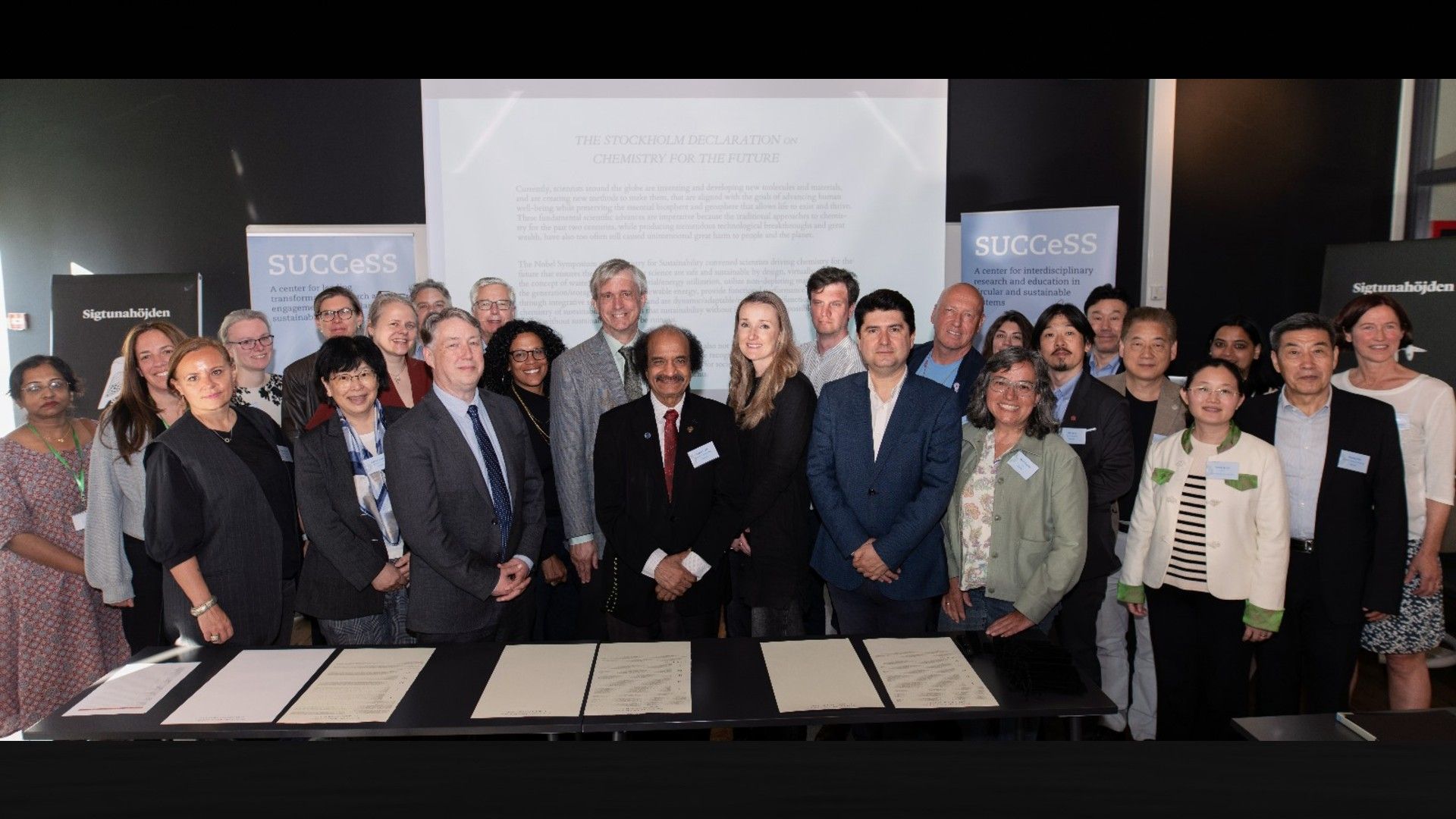
Leading voices from science, industry, education and politics came together at the Nobel Prize Museum for the official launch of the Stockholm Declaration on Chemistry for the Future. Among the signatories was the director of the Rafael del Pino Foundation's Chair in Science and Society, Javier García Martínez. Promoted by the organising committee of the Nobel Symposium and supported by SuCCeSSThe event highlighted the fundamental role of chemistry in addressing global challenges through ethical, sustainable and forward-looking solutions. For your interest, we reproduce the main contents of the declaration.
He begins by saying that "scientists all over the world are inventing and developing new molecules and materialsand are creating new methods of manufacturing themthat are aligned with the goals of promoting human well-being and preserving the essential biosphere and geosphere that allow life to exist and thrive". In part, this work is because "the traditional approaches to chemistry of the past two centuries, while producing enormous technological advances and wealth, have also too often caused great unintended harm to people and the planet".
The Declaration calls for a "chemistry of sustainability that ensures that "the products of our science are safe and sustainable by design, virtually eliminate the concept of waste through full material/energy utilisation, use non-depleting materials, enable renewable energy generation/storage/transport, provide functional performance, designed through integrative systems thinking, and are dynamic/adaptable/resilient/multifunctional".
To achieve this, the signatories urge to ensure, with regard to the activity of scientiststhat "our design, development and implementation of chemical products and processes proceed in a manner that integrates the goal of reducing or eliminating harm to people and the planet by design".
Secondly, they consider that "all parts of our chemical company must act now to recognise that the risk to people, prosperity and the planet from inaction and preservation of the status quo is far greater than any risk that may be involved in transitioning to a 'new chemistry for sustainability' model that benefits people.
"Our teachers, students and chemistry professionals must be trained now to ensure that the invention of new chemicals or chemical transformations integrates health, sustainability and inherent safety as essential elements of performance," adds the Stockholm Declaration.
In addition to this, "the transparency of the underlying data and analysis of the advantages and disadvantages of a new or legacy chemical technology to enable appropriate comparisons without concern for exaggeration or bias". Ultimately, it is key to "act now to ensure that our government policies on the chemical enterprise, including subsidies, regulations, tax incentives, protections or penalties, are aligned with the advancement of healthy and safe chemistry and discourage/disincentivise polluting, wasteful, toxic and dangerous chemistry".


